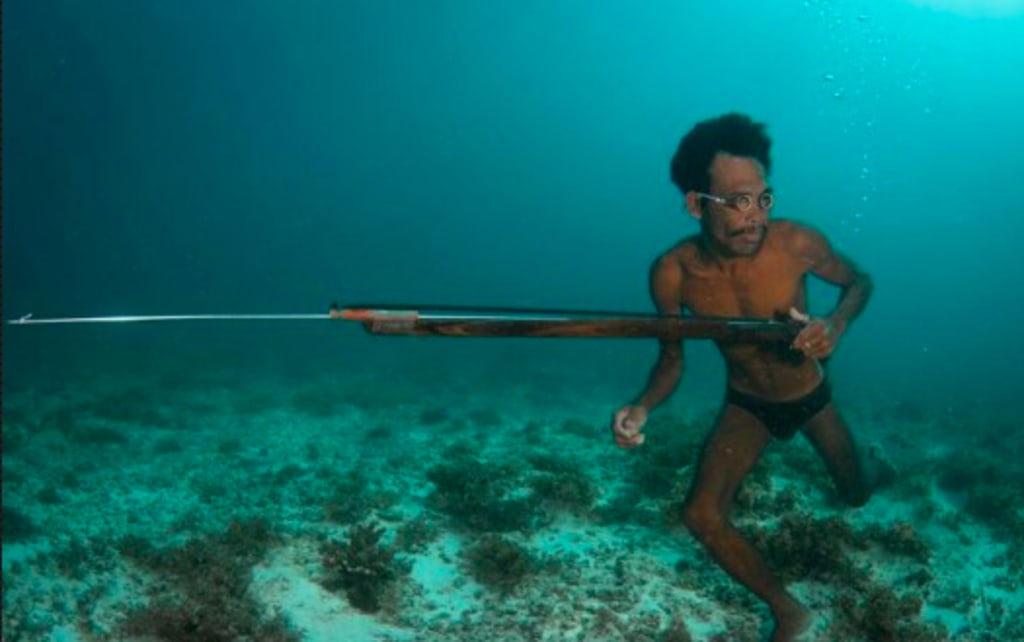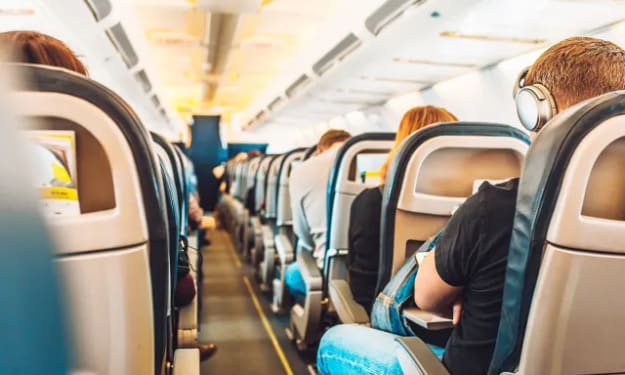Sea Nomads
Sama-Bajau, a maritime people

Hold your breath for as long as you can. Do it after an intense cardio workout, in the full bathtub, after years of training like an Olympian and my bet is that you won’t be able to achieve what the Sama-Bajau people accomplish every day off the coast of Indonesia, Malaysia and the Philippines. What distinguishes these nomadic peoples living and hunting for food in flotillas among the water is that, unlike a Michael Phelps who’s been noted to hold his breath for 22 minutes, these people can hold their breath for potentially 15 minutes while being more than 200 feet below the surface of the ocean!
Here’s a few reasons why:
For at least 1,000 years the people, who may not necessarily refer to themselves as Sama-Bajau but variants of the hybrid name, have lived their lives in boats and floating houses. They are the dominant ethnic group of the Tawi-Tawi islands in the Philippines. They hunt when the need arises using only a spear and wooden goggles, all made by hand. Though the varying groups of people of this ethnicity are spread and often subject to modernization, a great many people still adhere to the original practices, namely boat-dwelling and unimaginably expert sea-diving.
Sama-Bajau divers may spend up to 5 hours hunting for fish. Yes, that’s 5 hours submerged underwater throughout ONE day! It’s been recorded that some of their people make the choice to rupture their eardrums when they are quite young to better adapt to extensive underwater diving! I thought a bad case of tinnitus was rough. I was mistaken.
After more than a century of this lifestyle, the answer is obvious: it’s in their genes. In 2015, geneticist Melissa Ilardo studied the biology of the Jaya Bakti people of Indonesia for the answer. It was after a few trips that she discovered that the people hosted larger spleens than your average person. Even with the non-divers, the people have spleens 50% LARGER than most of us! So, the spleen. It’s basically the control center for the red blood cells that pump oxygen throughout our bodies. When we breath underwater, those cells are released at a greater rate thanks to the good ole spleen thus improving our oxygen levels. People who deep sea-dive competitively and some seals already have the upper hand on us when it comes to the spleen game. But hey, apparently you can train your spleen to adapt to extreme conditions if that’s your cup of sea water.
Wait, there’s more. Ilardo and her team took some blood samples and discovered various genes among our nautical nomadic neighbors, the Sama-Bajau. While I won’t pretend to completely understand all of the jargon, I did comprehend this: these wonderful people have hormones that naturally enlarge their spleens whether they actively dive or not. Also, the people of the region Ilardo studied may have, a few hundred years ago, engaged in sexual intercourse with the Denivosan. This group of people maintain a gene that allows present-day Tibetan people to survive in high altitudes. Basically, people did what they did to procreate and it’s possible that they created a legacy of incredibly amazing people who are modern mermaids, without the fins and folklore. These people are real, thriving sea-dwellers living a life I could only dream of. They are not mystic beings, they are magically human, proving the existence of the magic yet to be discovered within the people who inhabit this world. Still, they are people.
Like people, they are met with their own set of challenges that threaten their nomadic lifestyles. Their practices have been said to harm the coral reef. Some have been forced to build houses closer to shallow water or abandon the sea entirely and move to the mainlands. They are stereotyped and outcast by people who disapprove their lifestyle. Still, they are welcoming and have been noted as overwhelmingly kind people.
The Sama-Bajau possess genes that preserve their hearts, lungs and brains while diving as well as larger spleens to release more oxygen than your average casual swimmer. Also, it bears repeating: at more than 200 feet under the surface, they can hold their breath longer than it takes me to fall asleep. They are, in many ways, like the sea: expansive and boundless.
About the Creator
Marquis D. Gibson
i am an artist.






Comments
There are no comments for this story
Be the first to respond and start the conversation.